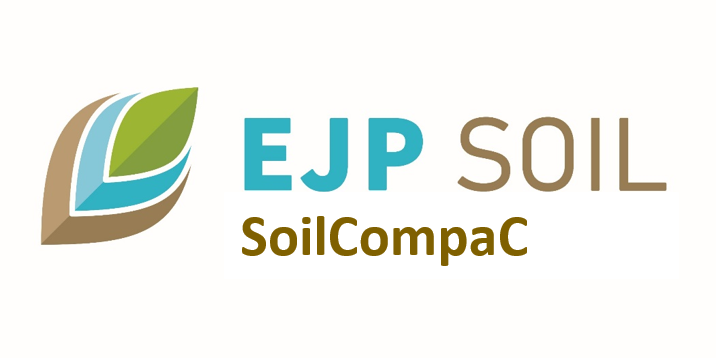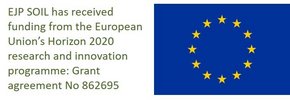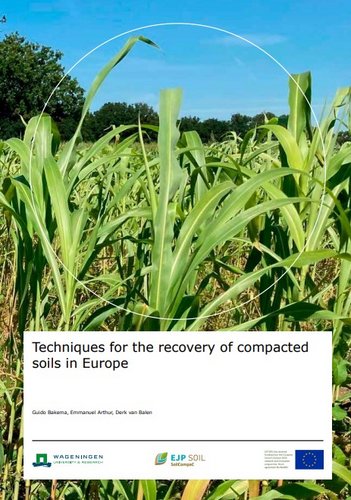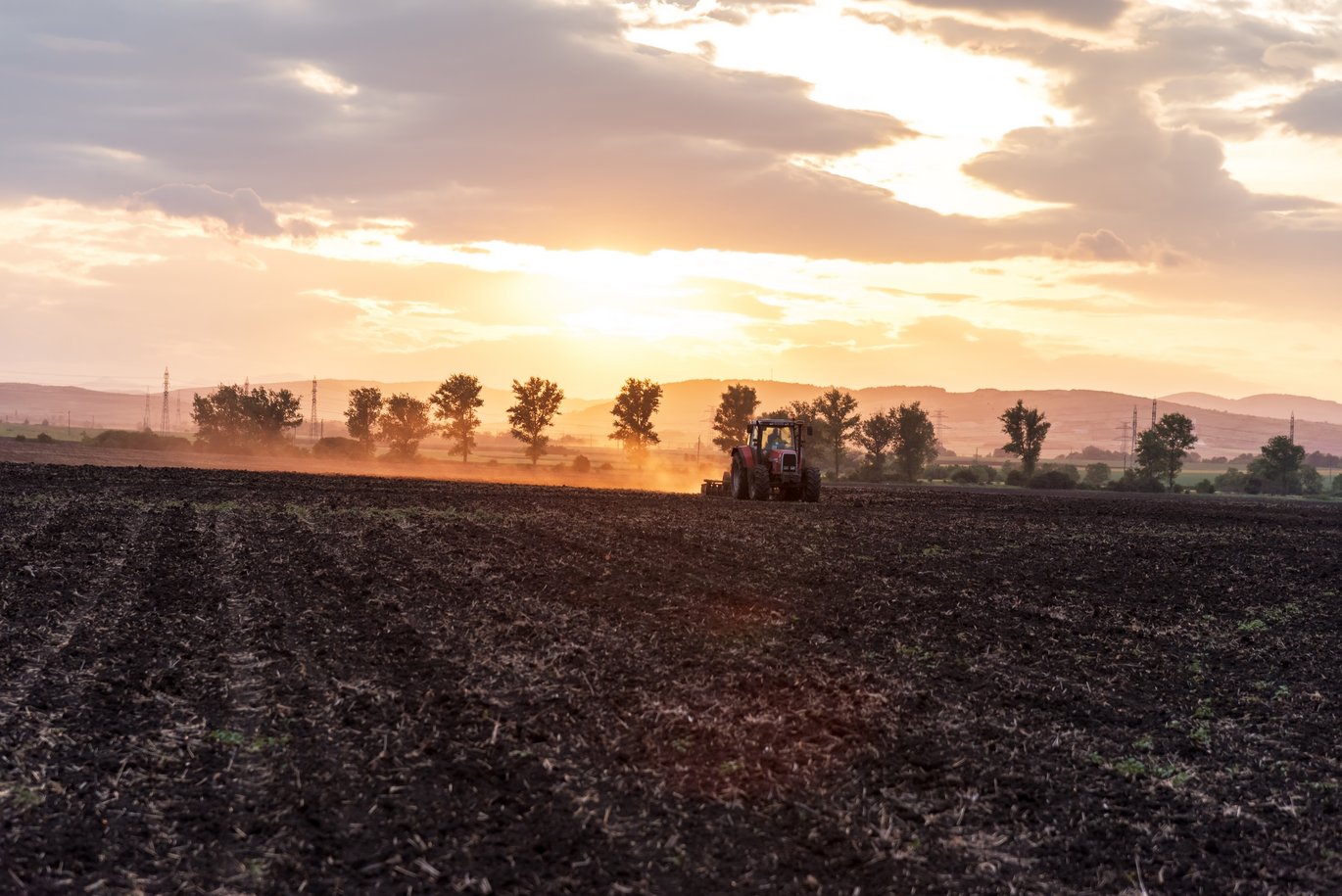SoilCompaC
| Start: | 1 November 2021 |
| Duration: | 36 Months |
| Aim: | Quantify interactions between soil compaction and climate, and present information on how to assess, detect, recover and minimize soil compaction |
| Keywords: | soil compaction, prevention, mitigation, recovery |
| Contact: | Project coordinator: Mathieu Lamandé, Aarhus University (mathieu.lamande@agro.au.dk) Project communication representative: Camilla Brodam (brodam@agro.au.dk) |

To read the full report: Click the image or click here.
About the project
Soil compaction is a major threat to soil productivity and ecological and hydrological soil functioning. Although adverse impacts of compaction on soil properties and functions are relatively well documented, estimates of the extent and severity of compaction in Europe remain elusive, we have limited knowledge on how compaction changes the carbon cycle, and we lack information on compaction risks for different pedo-climatic zones and cropping systems in Europe and how the risks evolve due to climate change. SoilCompaC directly addresses these knowledge gaps. SoilCompaC will quantify interactions between soil compaction and climate, and present information on how to assess, detect, recover and minimize soil compaction, thereby providing a basis for sustainable soil.
We lack detailed information on how climate change will affect i) the impacts of compaction on key soil functions such as productivity, climate regulation and water cycling, and ii) the risk of soil compaction in different regions of Europe.
Figure 1. Impacts of soil compaction on soil processes related to soil functions (climate regulation, water regulation and quality, soil productivity). Both drier and wetter future climate is expected to enhance compaction effects on root growth, due to either higher soil mechanical resistance and water availability (compacted in combination with droughts) or decreased soil aeration (compaction and wet periods), resulting in further decline of carbon inputs to soil as well as reduced crop productivity. Surface runoff that may lead to flooding or triggers erosion, N leaching and N2O emissions are expected to increase in future wetter climates.
The objectives of SoilCompaC
- Create a standard in terms of data availability and parameters needed for a country or a region to enable mapping of soil compaction extent and severity,
- Analyse the extent and severity of soil compaction using novel data-driven approaches and/or remote sensing for countries or regions meeting the data standard,
- Evaluate how climate change affects the risk of soil compaction for a range of European pedo-climatic zones,
- Quantify impacts of soil compaction on soil carbon stocks in a climate change context, and estimate impacts on greenhouse gas emissions, crop growth and water balance, for a range of European pedo-climatic zones,
- Synthesize quantitative knowledge on mechanical, natural and biological recovery of compacted soils across Europe.
SoilCompaC contributes to the impact area 'Sustainable soil management & agricultural production'. Read more about the vast contribution from the EJP SOIL project landscape to this area: Click here.


